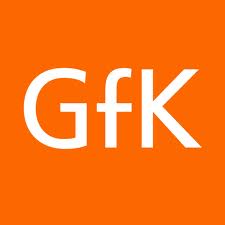 Nuremberg, 25 January 2013 – The internet drastically changes brand communications. It becomes livelier, more complex, richer in content and increasingly opaque. GfK’s comprehensive analysis of social media in the automotive sector demonstrates the way in which leading automotive brands are perceived online.
Nuremberg, 25 January 2013 – The internet drastically changes brand communications. It becomes livelier, more complex, richer in content and increasingly opaque. GfK’s comprehensive analysis of social media in the automotive sector demonstrates the way in which leading automotive brands are perceived online.
Which subjects are addressed on social media sites? Which automotive brands are discussed critically? Which topics do people talk about positively? Which brand has the best reputation on the Web overall?
The GfK Social Media Analysis for the automotive sector provided the answers to these questions and more. For the survey, market researchers analyzed more than 175,000 different internet contributions (articles, websites, Facebook posts, Tweets) in Germany, Austria and Switzerland. Overall, the content of more than 17,000 contributions was comprehensively evaluated.
The GfK survey was carried out in collaboration with Sensemetric. It reveals that user-generated content makes up the majority of all online conversation volume, ‘buzz’. For automotive brands, 61 percent of overall buzz is generated by consumers, while only 39 percent comes from professional organizations, such as manufacturers and the media. However, distribution varies quite considerably from brand to brand. While a remarkable 79 percent of communications about Audi are from consumers, the share for Hyundai is much lower, at 53 percent.
Audi has the greatest ‘share of voice’ in the German-speaking area (19 percent), followed by BMW and Mercedes-Benz (16 percent each). Despite its significantly higher sales figures, VW trails behind the premium brands in fourth place (15 percent).
It is striking that the brands noticeably differ with regard to the channels on which the buzz is generated. While Mercedes-Benz is strongly represented in traditional areas (online and forums), Audi and BMW are in the lead for social media networks (e.g. Facebook). More than half the online buzz of these two brands is generated in these newer channels.
The GfK study also shows that there are two main topics which to a large extent fuel online communications: new product launches and brand shapers. For Mercedes, the new A-Class achieved considerably higher buzz values than its market significance would indicate. The same is true for the BMW 3 Series and the Audi-A3. Discussions frequently relate to the design of the products (23 percent) and are often quite animated. For example, when talking about Mercedes, 38 percent is positive and 18 percent is negative.
In addition to new product launches, brand shapers are also discussed online. Products, topics and services which give a brand a clear advantage or special status in consumers’ perceptions, influencing the brand’s character, are called brand shapers. Audi’s R8 sports car has considerably higher buzz values online than most other product ranges, despite or perhaps particularly because the actual attainability of this car is so low. Desirability and fascination result in passionate debates, which in the case of the R8 are 82 percent generated by users directly. The sports car predominantly triggers positive statements (92 percent positive/neutral; only 8 percent negative). A similar pattern is evident for other manufacturers, so it can be concluded that brand shapers have the potential to substantially strengthen positive opinion on a brand. To this end, the internet is an extremely powerful multiplying medium.
As the significance of social media rises, targeted brand communications will become more challenging for automotive manufacturers in future. Despite this, it is possible to strengthen online buzz in a focused way and to guide it to a certain extent. For this, companies must carry out comprehensive analyses of how their brand is judged online. With new tools for social media analysis, GfK helps its clients to analyze and interpret the wealth of information from various platforms.
About GfK
GfK is one of the world’s largest research companies, with more than 12,000 experts working to discover new insights into the way people live, think and shop, in over 100 markets, every day. GfK is constantly innovating and using the latest technologies and the smartest methodologies to give its clients the clearest understanding of the most important people in the world: their customers. In 2011, GfK’s sales amounted to €1.37 billion.
To find out more, visit www.gfk.com


